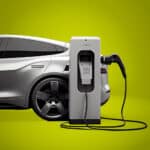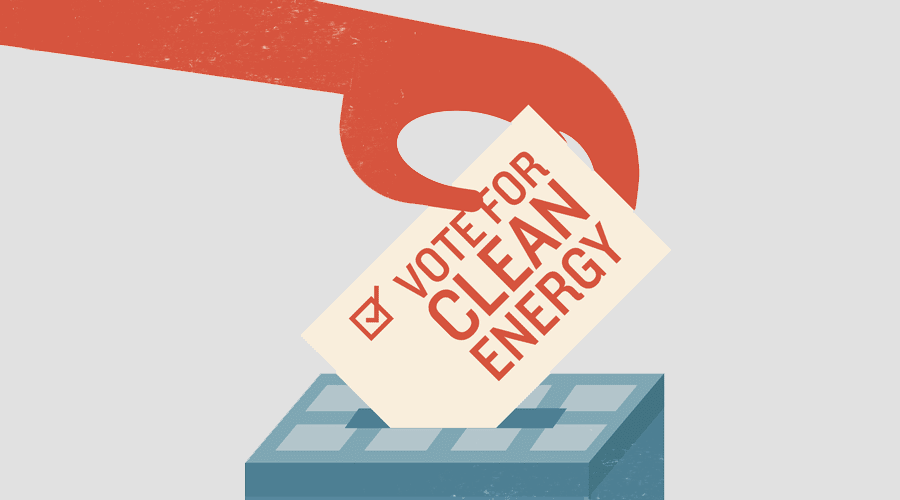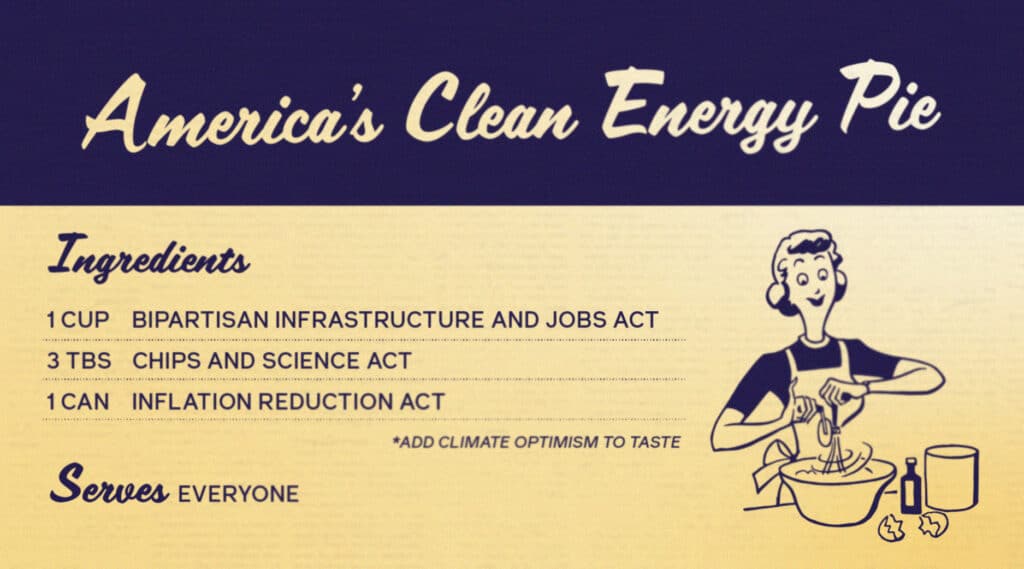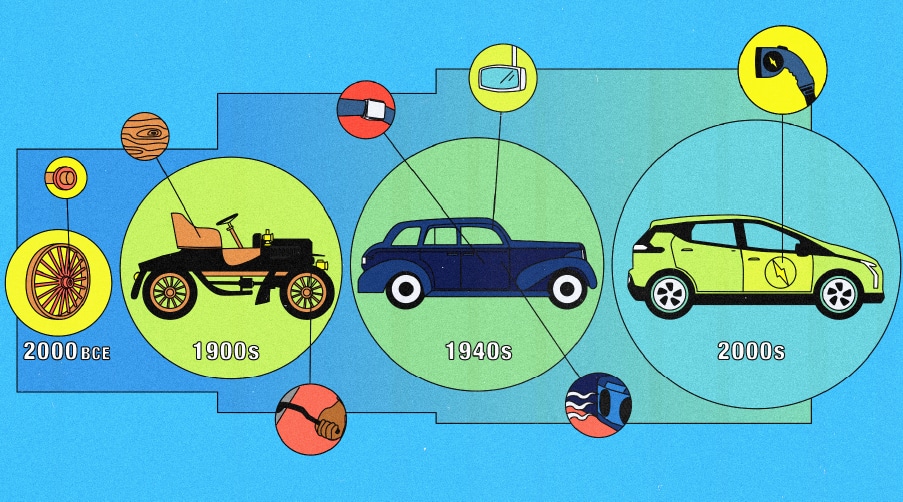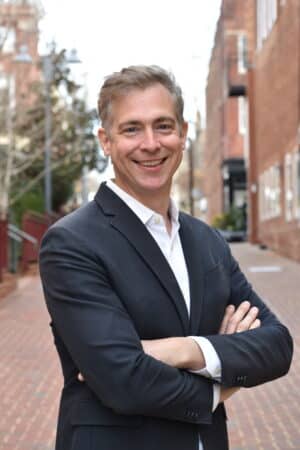
A few weeks ago, we made the bittersweet announcement that our founding Executive Director Wendy Philleo was leaving her post and that our long-time colleague, Stuart Gardner, would be taking the helm.
We sat down with Stuart to learn more about what he’s excited to accomplish as Executive Director, why clean energy is more important now than ever, and why expanding access to clean energy for all must be a priority. This interview below has been edited for length and clarity.
Generation180: You joined Gen180 in 2020. What’s changed since then and what’s inspired you to take on this leadership role?
Stuart Gardner: I joined Generation180 in June 2020, at the height of the COVID19 pandemic. I had spent most of my career in the auto industry, but this opportunity came up to join the Gen180 team and develop a program to get more people to consider making an electric vehicle their next car purchase. I’d always been part of a large corporate team and was excited to join this (at the time) small group trying something new to get people into electric cars. I knew from my work at Volkswagen that EVs were the future, I believed climate change to be a pressing global issue, and saw my chance to join a great team already doing important work.
Clean energy is more top of mind for Americans across all socio-economic and political affiliations. While there’s plenty more work to do in our county’s clean energy transition, with federal policies like the 2022 Inflation Reduction Act being passed, things like electric cars are going from niche to mainstream. For me, that’s the biggest opportunity. Now when I say I work in clean energy, people are aware of what that is. The climate conversation is no longer about convincing people that it’s happening, but getting them to take action. Generation180 has been working for years to help people go from doom to gloom and become actively involved in embracing tangible solutions to climate change through electrification. I’m excited to capitalize on that momentum we’ve built.
Gen180: Do you consider Generation180 part of the national environmental movement or a group that taps into more mainstream popular culture to adopt clean energy?
SG: There are a lot of really good policy-focused organizations and individuals working on clean energy and climate in the U.S., but there aren’t a lot of strategic communications groups doing what Generation180 is doing through creative storytelling and visual design. Our mission is to inspire everyone to take action on clean energy and we’ve found that tapping into issues like putting solar on schools and getting more electric cars on the road are two effective ways to address the biggest sources of carbon pollution.
We are a group that consistently punches above our weight, so to speak. We still only have 16 people on staff at Gen180, yet we’ve racked up national awards for every program area, received presidential recognition for our solar schools and national drive electric pledge, and developed partnerships with major players in the auto, music, and sports worlds. The messages we’re putting out there and the creative ways we’re doing it through equipping comedians with clean energy info, making microgrants to Latin American influencers, or hosting a sweepstakes for an F150 Lightning are all out of the box projects that have required our team to continually innovate, pivot, and adapt. We can do that because we’re a small, nimble team, but we also think the pilot programs we’ve tested are ready to be scaled at a much broader level. We’re showing that being a clean energy ambassador is for everyone and we want all Americans to see themselves in this work.
My overall approach is to scale what’s already been built. We have a strategic process for our work, we pilot great campaigns, make adjustments as necessary to achieve greater impact, and then take our lessons learned and scale these initiatives to new communities and states.
Gen180: Wendy leaves some big shoes to fill. What do your ambitions look like to continue building the momentum Gen180 has achieved in recent years?
SG: Wendy’s leadership over the last six years is irreplaceable. She instilled an entrepreneurial spirit to the organization that has become one of our hallmark values. She did what so many great leaders are known for – hired good people and got out of their way. I intend to carry that on. My overall approach is to scale what’s already been built. We have a strategic process for our work, we pilot great campaigns, make adjustments as necessary to achieve greater impact, and then take our lessons learned and scale these initiatives to new communities and states. I want to go bigger in our partnerships, and work with more creatives and influencers in key demographics who still need to hear about the benefits of clean energy.
Gen180: What challenges do you anticipate ahead of you?
SG: The most pressing challenge I see facing Gen180 and clean energy progress in the U.S. is increased polarization and misinformation campaigns that turn people off from considering how clean energy will improve their lives. The reality is that the federal and state policies committing to more clean energy power is good for everyone, but there is a lot of misinformation out there, and it will take public outcry and broad engagement to actually move us in the right direction. When you have honest conversations about our planet and clean energy with rural, suburban, and urban folks from across the country, they’re on board. We need to cut through the polarizing noise. Regardless of who wins the election in November, we won’t stop or slow our work. Electric vehicles are better, solar schools are just better for all communities. We will work harder to prove that these are bipartisan issues that improve quality of life for all Americans.
Gen180: More Americans are becoming climate-conscious, what will be Gen180’s role in amplifying that awareness as quickly as possible?
SG: I think a lot about this actually – how do we mobilize people who know and care about clean energy and climate while also meeting those who are brand new to it? We need to meet people where they are and also inspire further action – through advocacy, music, comedy, and storytelling. We need to do more as a country, and clean energy movement to meet low income, frontline communities where they are with electrification and how they can be part of this. People will not try a solution they don’t think is for them. It’s my intention that we broaden who we work with to meet more of those audiences who haven’t heard about clean energy. There’s so much good work being done nationally, and I want Gen180 to connect with these groups and scale what we’ve already done and go big.
We want people to get excited to take that first clean energy choice, then make another choice, and another one until it becomes habit. And we hope they tell their friends and family members what they’re doing and why they should consider doing it too. That’s how we win.
We want people to get excited to take that first clean energy choice, then make another choice, and another one until it becomes habit. And we hope they tell their friends and family members what they’re doing and why they should consider doing it too. That’s how we win.







